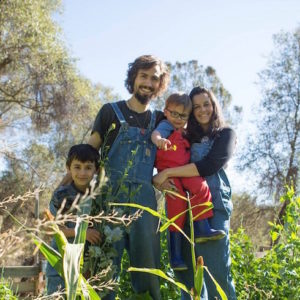Matt Powers
The Advanced Permaculture Student Teacher’s Guide
At the Homestead School, we have been operating as a Permaculture Homestead for decades. We are excited to offer structured Permaculture education in our curriculum, including outdoor education, sustainability, and agriculture.

Matt Powers
The Advanced Permaculture Student Teacher’s Guide
“Permaculture is the core and foundation for all ethical education; it is interacting with other people, all forms of life, and the Earth with respect and care for the future. All variation is circumscribed by these boundaries.
It is the birthright of every human being to know how to live regeneratively and ethically on Earth, so it should be the frame through which all education is viewed.
To neglect or deny anyone the knowledge of how to support themselves without depleting or destroying their natural resources and to live ethically with other people and the living world is to deny them the most fundamental right of a living being.“
(Based on the Education Standard by Matt Powers)
Image Credit: Randy Harris.